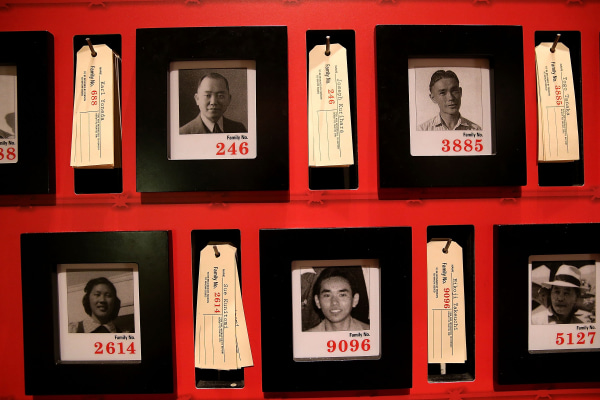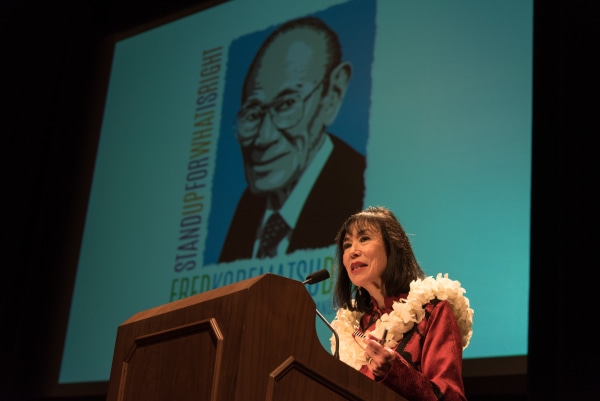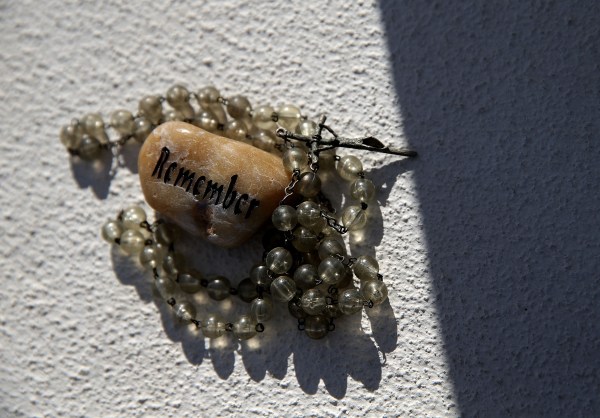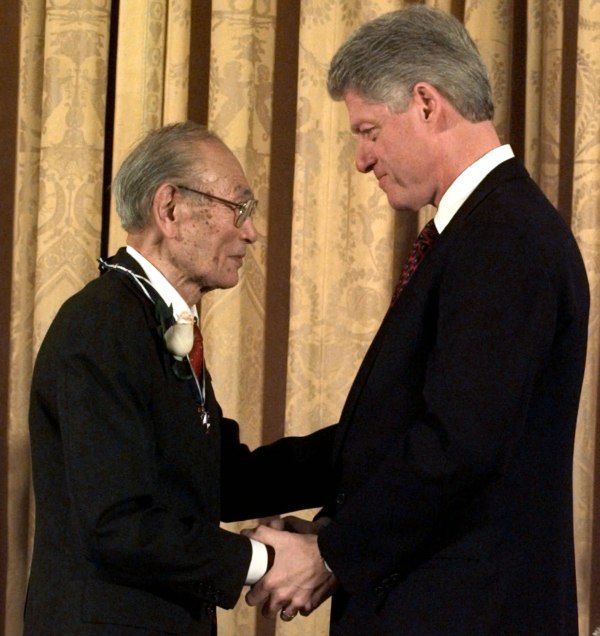Day of Remembrance Is a Reminder to Continue to Fight Injustice
On this day in 1942, President Franklin D. Roosevelt signed Executive Order 9066, which gave the U.S. military the authority to incarcerate more than 120,000 Japanese Americans during World War II. February 19 is observed today as the Day of Remembrance.

In communities across the country, the Day of Remembrance is commemorated with events to promote education and understanding about this dark chapter in American history. The legacy of the World War II experience is personal to me: my father, Fred T. Korematsu, challenged the incarceration in a case that went to the U.S. Supreme Court, and he is the namesake of the civil rights organization I lead, which honors his fight for justice for all people.
The Day of Remembrance is a reminder that we cannot let down our guard against injustice even as we move farther from the events of World War II. We must find purpose in this history, seeking out its lessons and reaching out to educate others across different generations and diverse communities.

Today, that purpose is compelling and urgent. Racial tensions are prevalent, and stories of hate crimes, profiling, and discrimination against immigrants and minorities pervade the news. The American Muslim community, in particular, is facing a recent surge in the hostility it has confronted since 9/11, with some public leaders amplifying the unjust hysteria by proposing measures to curtail this community's freedom and civil liberties.
The public and political scapegoating, stereotyping, and profiling of American Muslims that is on the rise today most strongly parallels the experience of Japanese Americans during World War II. This treatment has extended to other communities, including Arab, Middle Eastern, and South Asian Americans.

In 1944, the U.S. Supreme Court upheld the constitutionality of the Japanese American incarceration in my father's case, Korematsu v. United States. Although the decision has been widely condemned — including by current Justices of the Supreme Court and the late Justice Scalia — it has yet to be overturned. The ruling remains an ominous shadow on Americans' civil liberties in times of crisis, when our Constitution's principles must hold their strongest.
Current racial tensions and challenges facing American Muslims, immigrants, and other minority communities across America remind us that we have not overcome the past. On this day, we are called not only to remember, but also to recommit to our collective responsibility to ensure that the lessons of history prevail over a repeat of history.

Karen Korematsu is founder and executive director of the Fred T. Korematsu Institute.
